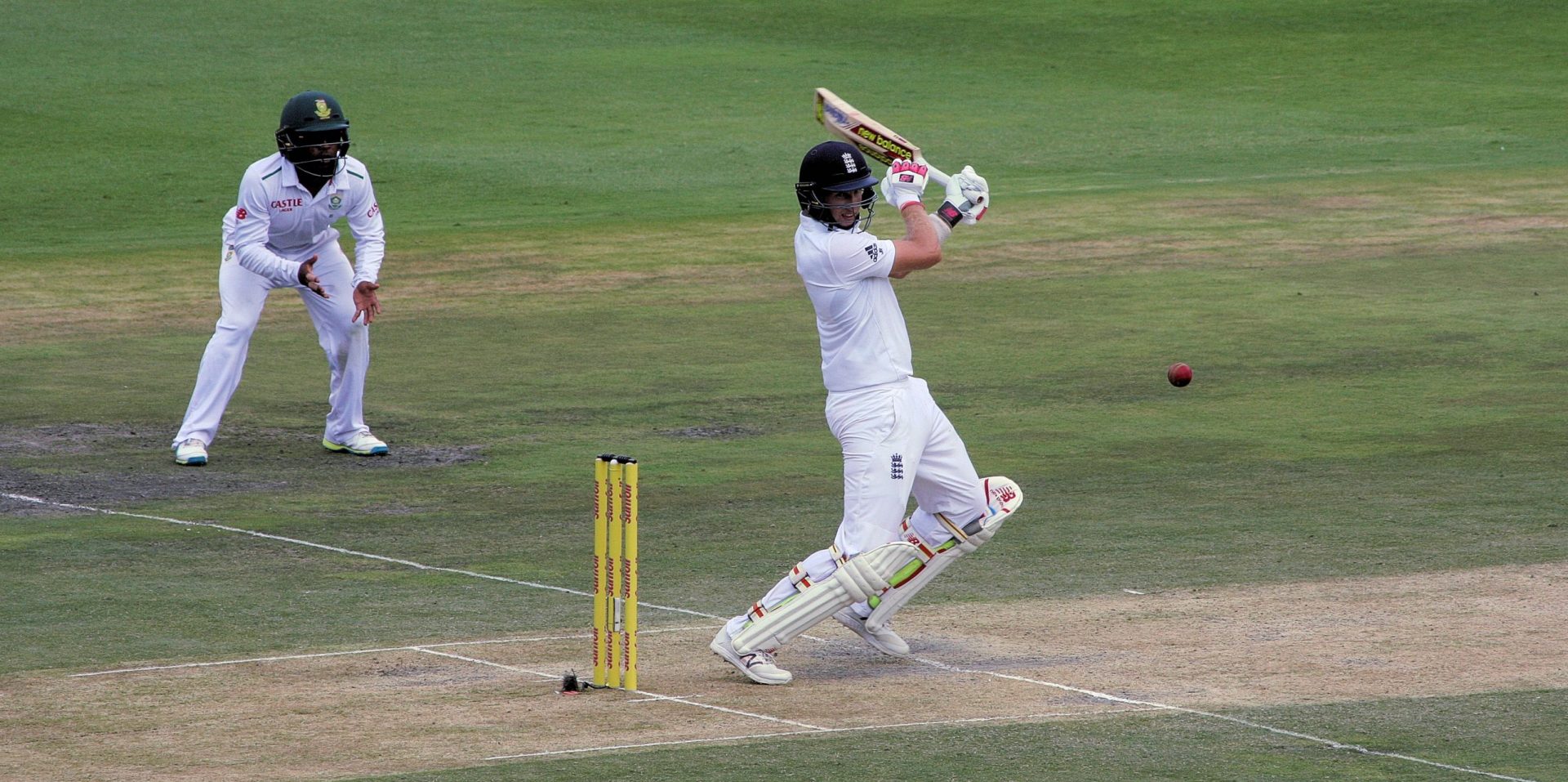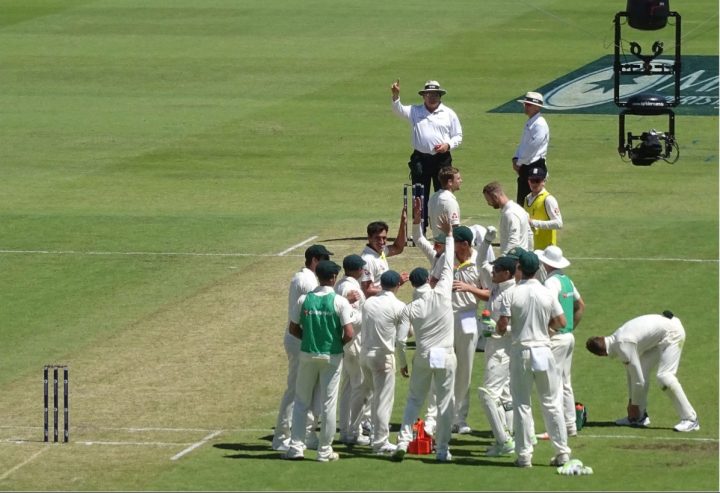The sackings of Ashley Giles and Chris Silverwood came as no surprise given England’s woeful year in Test match cricket. They’re a step in the right direction, of course, but this isn’t the meaningful and long-lasting change we hoped for.
The King of Spain came into the role of managing director in 2018, and in 2019 appointed Chris Silverwood as head coach. However, throughout his tenure, you’d be forgiven for not knowing what Giles’ role actually was.
Managing directors are not coaches, so Giles didn’t deal with any of the training. What’s more, during the Ashes, Giles claimed he had no say on the scheduling whilst at the same time lamenting the fact that England had played three times as much cricket as Australia in the last two years.
If a Director of Cricket isn’t in charge of selection, or training, or even organising fixtures, then it’s hard to see how he actually fills his days. Let’s not forget that Giles didn’t even do any number crunching or analysis, either. Performance director Mo Bobat and coach Chris Silverwood, who would work in conjunction with Joe Root, did all of this background work.
This meant that Giles effectively only had one big decision to get right in recent times: dealing with the departure of Ed Smith. His solution was to merge the roles of head coach and chief selector. And he got it horrible wrong.
Giving an out-of-his-depth Chris Silverwood complete responsibility for picking squads, managing the team, and executing the controversial rest and rotation policy, was inexplicable. Giles basically gave England’s least experienced head coach for decades the most power of any England coach since Ray Illingworth. What made him think that Silverwood had the qualifications for such an expanded role?
As for Silverwood himself, it’s no surprise that he’s been relieved of his duties, too. The squad for the West Indies series in March will need picking within the next 2 weeks, and if Silverwood wasn’t going to be leading the team after the Ashes debacle, he surely can’t have any say in who should be touring.
Silverwood has been a disaster tactically. He selected 5 seamers and no specialist spinner on at least three occasions, and then picked the wrong sides at both Brisbane and Adelaide. There were also rumours of player discontent shortly after the Hobart Test match, with reports suggesting that an unnamed player was fat-shamed and multiple players being furious with the Covid testing arrangements for their families. Some players were also unhappy with the methods of batting coach Graham Thorpe, who has also unsurprisingly lost his job.
Despite all of that, however, England’s biggest problem is clearly at board level. Tom Harrison, the man who delivered The Hundred, still seems to have a mysterious strangehold over English cricket. His time as chief executive has been littered with controversy, whether it be the poor handling of cricket’s discrimination problem, the shameful £2.1 million bonus arranged when ECB employees were losing their jobs, or the fact that it’s costing the sharp end of £1,000 a season for a single child to be able to train with a county age group team. And then there’s the self-defeating domestic schedule, which was a mess even before The Hundred made things so much worse.
If anyone’s to blame for England’s Ashes humiliation it’s Tom Harrison. And yet he still refuses to step aside, clinging desperately to power for another few weeks so that he can claim his undeserved bonus. The departures of Giles and Silverwood therefore look increasingly like ploys to deflect the blame. The man wielding the axe is the person who most deserves the axe himself.
But, having said that, the players shouldn’t escape blame either. Many of them simply haven’t performed over a long period of time. There was the toss in Brisbane, not picking Leach in Adelaide, the predictable batting collapses, the use – or should I say misuse – of Ben Stokes, and the self-serving Stuart Broad running to the media and blaming the batters even though he and James Anderson frequently bowled the wrong length.
There were other problems, too: Root’s ineptitude as captain as well as his underwhelming series with the bat, the hypocrisy of Jos Buttler demanding that fellow batters show more patience before launching a ball to deep-square leg on the stroke of tea, Chris Woakes’ crisis of confidence, Ollie Robinson’s fitness. The list goes on. Yes, England’s schedule, the rest and rotation policy, bio bubbles, and poor management played their part, but England’s players are far from blameless.
So who actually enhanced their reputations this winter? Not many. Mo Bobat and Jon Lewis remain in situ, and Paul Collingwood has just been named as interim head coach for England’s tour of the West Indies. We all wish Collingwood well. Indeed, if the team does well in the Caribbean, and he’s offered the job on a permanent basis, then Brigadier Block might well be the only beneficiary of England’s Ashes disaster.
However, while Tom Harrison remains and the real problems undermining our Test team are left unaddressed, it’s unlikely that any coach can orchestrate sustained success. Indeed, the decision to let Joe Root continue as captain is almost irrelevant considering the bigger picture. Last week’s clear-out is a step in the right direction, but more heads must roll if matters are going to improve in the long-term.
Joe Ross









Ghastly as Harrison is, the problems go deeper than him as well. The ECB-Sky stakeholder partnership is toxic.
Anyway, the new magic bullet solution – typical of a culture that overvalues coaches – is to appoint Justin Langer. It’s the RFU strategy of throwing huge money at a foreign coach who then isn’t actually that successful. I’m against it for two reasons:
1) Is Langer really that great? His record on the field as coach is somewhat mixed and his “old school” approach seems to cause serial fallings-out with players. England’s senior players mutinied at Ed Smith’s rotation policy so how would it go with Langer in their faces? Younger players are used to being IPL bigwigs and expect “empathy”.
2) Appointing Langer would just paper over the ECB’s biggest failure (yes, even more than the Test team) – their serial failure to foster elite coaches. The record of English team sports in coacing is generally abysmal. I don’t see why nations in the top rank are allowed to recruit foreign coaches at all – the same qualifications should apply as to players.
England seem to be stuck in a pattern of yo-yoing between tough nut coaches/captains and then reacting against that. Fletcher/Hussain and Flower/Strauss produced success but also tended to burn players out. The Fletcher/Vaughan combo worked best because they were a mixture and perhaps they imagine Langer/Root would be a similar nice-cop/nasty-cop routine but Vaughan grew up under the Fletcher regime rather than having him parachuted in when he was set in his ways.
I would also be against appointing Langer. He’s too associated with the baggy green. It wouldn’t sit comfortably. I’m also not totally convinced by his credentials. He struck me as a bit of an oddball in that documentary The Test, spouting all the usual overfamiliar cliches.
Dear James – what did you say about Langer on Twitter?
You said that appointing him would appear “desperate and subservient”.
As if England aren’t “desperate and subservient” at this stage? If Langer wanted the job, you’d bite your arm off to sign him. Because you know that Australia produces better coaches than England. Because there are cultural differences that underpin Australia being, on average, better at cricket.
Honestly, which part of this would you dispute?
You can delete this, but if Langer gets the job, I’ll be reminding you.
All good points. It’s not just the ECB and the RFU – it’s been happening at Man Utd for the last decade too. No continuity of coaching, just 180-degree reactions against whatever has gone before with no actual strategy for returning to the top beyond a succession of messiah-like names implementing knee-jerk philosophies before they run out of time and get sacked. It’s hard to think of a sporting organisation where churn-as-strategy has proved successful over a long period without the inevitable fallow periods.
According to the DM, STrauss has told Root he must bat at No.3.
Langer? That’s like Everton appointing a Koppite. The guy hates England, quite rightly, and would only want it to rub the Ozzie nostrils in the dungheap.
Good riddance the dynamic duo. At Lancs Giles was appointed over a sherry with the chair without due process and seemed more interested in pursuing a higher management degree. Well, he got to the Promised Land – but not for long and has left no positive legacy
Agree with everything said about Tom Harrison, but who sacks the boss? Not sure how appointments/dismissals work at that level.
PS – I seem to have dropped off the new article alert.
Dear James – before the Ashes, you made a bunch of lame pre-emptive excuses and claimed you’d be a “neutral observer” for the series ahead.
That was obviously absurd. I said so at the time.
England got smashed 4-0. And you clearly weren’t a “neutral observer”. That was nonsense. You’re not a “neutral observer” now either.
Mate, you’re an English cricket fan. You got your pants pulled down, yet again. Tradition demands that you get some salt and pepper from Australians. If the boot was on the other foot, you’d be all over it. Suck it up and stop being such a weak-chinned English crybaby.
Well Mark Wood bowled well in Australia, so that is a bright spot.